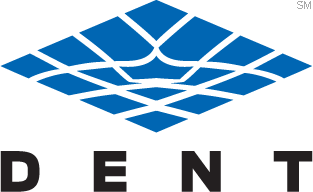The Economics of Sloppy Journalism
 Dent speaker Craig Newmark will be joining us in Sun Valley this March to provide insights into a topic near and dear to him, the importance of trust in journalism. Craig asserts that a trustworthy press functions as the “immune system of democracy”, and while that sounds intuitively true, what evidence exists to support that case?It turns out quite a bit of research backs up this claim. For a sample, see Coyne and Leeson: "Media as a Mechanism of Institutional Change andReinforcement", Kumar: "Promoting Independent Media: Strategies for Democracy Assistance", and Weder "A free press is bad news for corruption".
Dent speaker Craig Newmark will be joining us in Sun Valley this March to provide insights into a topic near and dear to him, the importance of trust in journalism. Craig asserts that a trustworthy press functions as the “immune system of democracy”, and while that sounds intuitively true, what evidence exists to support that case?It turns out quite a bit of research backs up this claim. For a sample, see Coyne and Leeson: "Media as a Mechanism of Institutional Change andReinforcement", Kumar: "Promoting Independent Media: Strategies for Democracy Assistance", and Weder "A free press is bad news for corruption".
Positive Externalities of a Functional Press Market
To the uninitiated, the term "externality" has a negative connotation (pollution, etc.). Economists know well that positive externalities are pervasive too, and Jacobsson, Becker at. al. say a healthy, competitive, media marketplace provides a society with the positive externality of enhancing democracy (emphasis mine):
Additionally, independent high-quality journalism products have significant socioeconomicexternality value in the form of encouraging democracy, fostering development of a civil society, supporting economic development, promoting governmental transparency and discouraging corruption...This leads some to suggest that the true value of mediaincludes the provision of quality information that serves society’s needs...and that the definitions of consumer welfare and utility in media markets should reflect that."
In other words, individuals consume news they like, and as a by-product society gets better institutions.
The Problem of Hypercompetition
The problem? Jacobsson, Becker at. al provide a lot of evidence that this externality is greatly mitigated in a "hypercompettive" market. What is hypercompetition? They define it as:
"...a market in which supply substantially exceeds demand so that a large percentage of the producers in the market operate at a loss and are dependent upon subsidies from external sources to stay in business. In the case of media, a hypercompetitive market is one where combined revenues from advertising and subscriptions are insufficient to cover operating costs for many of the media companies in the market. By some estimates, up to one-third of total media-industry operating costs in some developing countries come from external subsidies rather than operating revenues."
At first blush, this does not seem like much of a problem. More than ample consumer choice is typically viewed as a positive thing, and while it may be true that an individual consumer can better find what they want, there is evidence this translates into a net societal loss.What is the result of hypercompetition in media?
"...media markets often are characterized by hypercompetition suggest that excessive competition may result in low-cost, low-quality news strategies such as focusing on scandal and sensationalism...It also may produce media organizations andmedia workers susceptible to influence peddling, and journalists who are not well-prepared for the challenges of their profession. In short, it may well be that under conditions of hypercompetition, media that survive in the market may do so at the expense of their journalistic product and their larger contributions to society. "
Contrast this to the healthy optimum in terms of competition:
"A synthesis of these two models suggests there should be an optimal level of competition relative to the resources available in the market that would produce a sufficient number of financially strong media companies to make the industry largely impervious to outside influence."
Mitigating the Incidence of Low-Quality News
One of the main areas where Craig has been focusing his attention lately is on how news consumers can benefit from traditional principles and ethical standards of journalism. Efforts of institutions he supports (Poynter Institute, Center for Public Integrity, etc. serve to augment the educational efforts of traditional journalism schools.These organizations directly addresses a core symptom of hypercompetition (emphasis mine):
In media markets suffering from hypercompetition, however, the sharp increase in the number of media organizations sometimes outstrips the ability of the educational infrastructure to produce enough professionally trained journalists. Additionally, inadequate audience and advertiser resources relative to the number of media outlets in the market keep wages for journalists low despite the limited labor supply, making it difficult to attract qualified professionals to available jobs (Hollifield, Becker & Vlad, 2004; 2006). The consequence is that many working journalists and other independent content producers have little professional education or training.
We are looking forward to seeing Craig in Sun Valley, and to us all delving into this topic more deeply.
